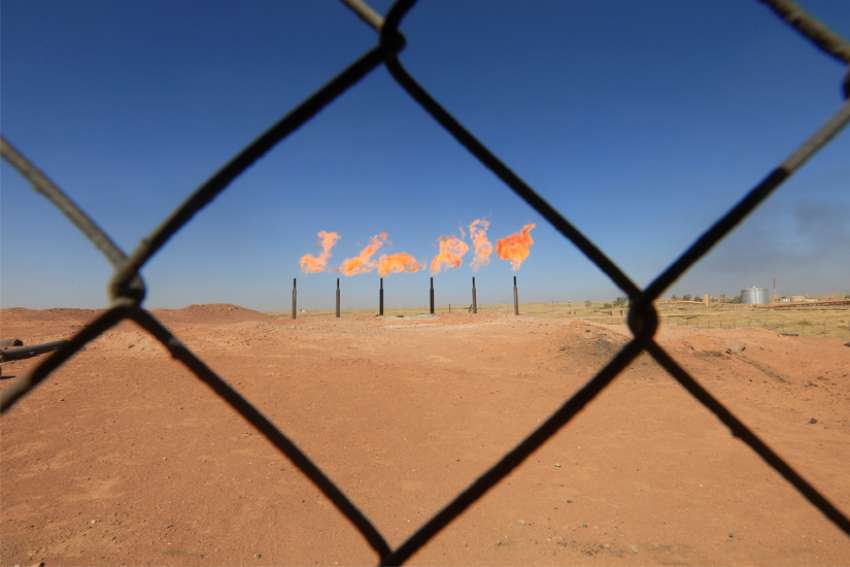Meeting with Jesuits in Thailand last month, Pope Francis decried national leaders who have compromised their commitments in the 2015 Paris Climate agreement. Their focus on short-term economic gain has made fighting climate change a secondary issue, he said.
In a message to the UN Climate Change Summit, released Dec. 4, the Pope said the Paris pact showed growing international agreement on the need to work together to protect our common home. “Sadly, after four years, we must admit that this awareness is still rather weak, unable to respond adequately to that strong sense of urgency for rapid action called for by scientific data at our disposal.”
“A clear, farsighted and strong political will” is needed to re-focus economic investment to safeguard the future of our planet, he wrote.
Political will. What a concept! Too often, however, to discover what political will exists you have to follow the money.
Alberta Premier Jason Kenney’s idea of following the money is to track down outside sources of funds donated to environmental groups in the province. Nothing will be said about the billions of dollars of outside investment in the Alberta petroleum industry which has nurtured a culture which defends the oil business through hellfire and high water.
In the Church in Alberta, it is as if the Pope’s encyclical on ecology, Laudato Si’, were written in invisible ink. After Bishop Luc Bouchard’s 2009 pastoral letter, “The Integrity of Creation and the Athabasca Oil Sands,” drew sharp criticism, Church leaders have said little about fossil fuel development.
Leading psychologist Albert Bandura, born and raised near Mundare, Alta., would call the defence of the province’s golden goose an instance of displacement of moral responsibility. Displacement in that many deny the existence of climate change, putting “the blame” on Mother Earth for producing climate fluctuations. Others displace responsibility for the crisis by citing economic growth in China and India as the main culprits. It is they, not us, who should be called to task. We ourselves are wrongly seen as villains. Our hands are clean.
Of course, the blame should be spread. Alberta produces fossil fuels, but overconsumption is the gospel throughout the industrialized world, some parts of Canada preferring to get their oil from such beacons of human rights as Venezuela and Saudi Arabia.
Then there is a fatalistic view which says nothing can be changed: Renewable energy sources will never meet our “need” to gobble up massive amounts of non-renewable resources. That view ignores the reality that Germany, one of the world’s most industrialized nations, now derives 36 per cent of its energy consumption from renewable sources.
Bandura’s recent book, Moral Disengagement: How People Do Harm and Live with Themselves, is the bible of the myriad ways in which people and societies distance themselves from their complicity in evil.
Bandura not only examines the ways of escaping responsibility; he suggests methods for societal change. Doing so requires political will. Christians would say it also calls for repentance and grace.
Bandura holds that human behaviour is heavily influenced by social factors, whether they be the ethos of society or that of one’s peer group. That ethos can make us blind to our own moral failings. But where the will exists, the ethos can be changed, leading to dramatic changes in beliefs and behaviour.
Bandura’s research and that of others has led him to conclude that the most effective means of change is long-running serial dramas. Such dramas can help listeners and viewers develop strong emotional bonds with fictional characters whose thinking and behaviour evolve at a believable rate. He cites examples from some African nations where serial dramas have led to remarkable changes in societal beliefs and actions over issues, including genital mutilation, child trafficking and the prevention of AIDS.
In North America’s 300-channel universe, serial dramas may not be so effective as in Africa. But innovative solutions which change the culture can be as potent as government incentives and regulations. Either way, we yearn for leadership from government, media, education and the churches which will radically alter our mentality of overconsumption and growth at all costs.
(Argan is program co-ordinator at Star of the North Retreat Centre in St. Albert, Alta.)


